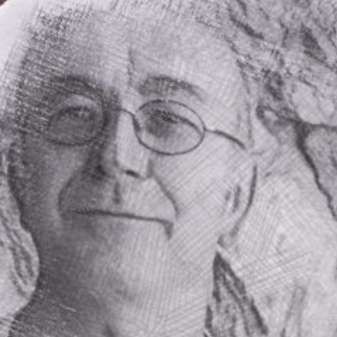The Lammermuir Festival has a proven track record of experimentation; venues and works frequently surprise, and this year has seen some branching out in the format of events.
Master and Commander comprised an evening of readings from the maritime novels of Patrick O’Brian, interspersed with music referenced in the books. Co-Artistic Director of the Lammermuir Festival James Waters, an evangelistic fan of the novels, explained the programme’s origin and how, due to O’Brian’s somewhat relaxed approach to musical reference, some creative thinking had been required. The four movements of Beethoven’s String Quartet in D, Op. 18 no. 3, formed the pillars of the programme’s architecture. It dates from 1800, the year in which the tale is set.
Any tonal movement opening with the dissonant interval of a minor seventh prompts a feeling of disembarking and eventual arrival, and this felt like a fitting beginning. The excellent acoustic of St Michael’s Church complemented the intimate sound of the Raeburn Quartet’s period instruments. Individually members of notable Scottish and European ensembles, the players blended as though they had been together for far longer than their two-year history.
Readings were masterfully supplied by Robert Hardy, known to many as Siegfried in the BBC’s All Creatures Great and Small. Stationed in the pulpit, he opened with the passage from Master and Commander where the then Lieutenant Jack Aubrey meets physician Stephen Maturin. Aptly, it takes place during a string quartet recital, where Maturin jabs Aubrey in the ribs for distractingly conducting ahead of the beat. Nevertheless, fast friendship follows and this bond forms a continuous thread throughout the series of novels. The humour in this passage, contrasting with the peril and warfare of others, was excellently put over by Hardy. It was almost as though he were enjoying the passage for the first time. We know this not to be the case, however, as Hardy has already recorded audiobook versions of the first two novels in the series. Unfamiliar with the novels, I was very taken with prose style’s light touch.
As sensibly suggested by Waters, the readings were allowed to lead directly into the music without detaching applause and the quartet offered the Adagio–Allegro from Locatelli’s Concerto Grosso in C minor, Op. 1 no. 6. This was played with the sensitivity and energy essential to such a paring and I found myself wondering why Locatelli is so rarely programmed.
A very well-known Boccherini Minuet was flanked by readings from Post Captain and The Mauritius Command. Played by Sijie Chen and Christian Elliott on violin and cello respectively, this elegant performance must have brought to mind the scenes in the film version of Master and Commander where Aubrey and Maturin dissolve the salty strains of the day with chamber music à deux.
Hardy’s reading from Desolation Island, telling of Aubrey’s pursuit by the 74-gun Dutch ship Waakzaamheid (Vigilance), was very dramatic. A lucky shot at the Dutch foremast sinks the ship and all aboard. The last words declaimed were “six hundred men”, before Sijie Chen stood to play a fittingly mournful Sarabande from Bach’s Violin Partita in D minor.
Those with sufficient pitch memory to recall this performance after the interval might have noticed the lift to D major as the third movement of the Beethoven quartet opened the second half. Was it felicitous or ingenious programming that this elegantly rendered movement, opens with some teasing D major–D minor ambiguity?
Set on dry land, The Reverse of the Medal deals with Aubrey’s framing and conviction for what would now be called insider dealing. The sentence of one hour in the pillory could be life-threatening, depending on the missiles hurled. Fortunately, maritime muscle, conveyed through Hardy's lesser-known Cockney accent, saw off any planned ill will and the event passed off more a salute than a salutary lesson.
By way of celebration the Raeburn Quartet segued into the joyous finale (Allegro) from Ditterssdorf’s String Quartet no. 1 in D. They seemed to be thoroughly enjoying the readings and the playing.
With an energy belying his extensive CV, Hardy rounded off his thoroughly enjoyable contribution to the evening with the passage from Letter of Marque describing Aubrey’s audacious theft of the French frigate Diane while berthed in the port of Saint Martin-de-Rey. The confused maelstrom of close-quarters combat was very vividly conveyed.
Echoing Aubrey and Maturin’s serial excursions, the Raeburn Quartet embarked on the final leg of the Beethoven. Could it have been the far-reaching nature of the evening’s voyages which drew my attention to the similarity between this movement’s opening and the Mexican Hat Dance? Whatever, this unhelpful observation was quickly dismissed in order to enjoy the Beethoven its own right.
In response to hearty applause, Hardy, on behalf of the quartet, bid us thank James Waters for the idea of the evening. After all, what are festivals about if not ideas?


